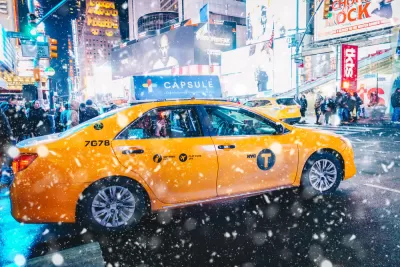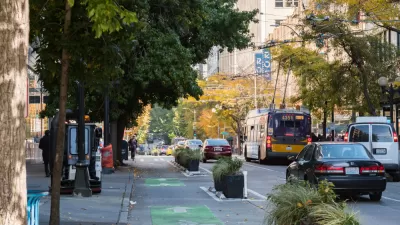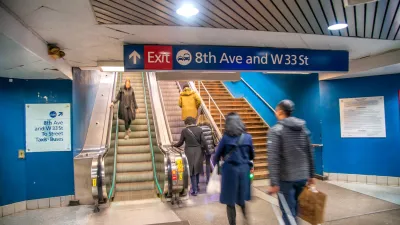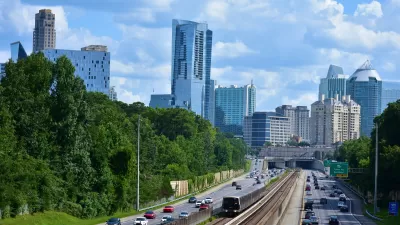CityLab has produced a pair of articles geared toward safe driving behaviors on New Year's Eve.

Mimi Kirk shares news of a bus company in Tokyo that runs a special service in December called the “Oversleeping Rescue Bus.”
For those who ride the Chuo Line in Tokyo, which begins at Tokyo Station downtown and ends about 30 miles west at Takao Station, in the foothills of the Kanto Mountains, the situation is particularly bleak: The rural area lacks inexpensive hotels and all-night restaurants where the stranded can wait out the night.
For these lost souls, the Nishi Tokyo Bus Company, a private outfit, has come to the rescue for the past four Decembers. Its “Oversleeping Rescue Bus” picks up passengers on three early Saturday mornings at Takao Station—at 1:05 am, 10 minutes after the last train rolls in—and transports them back one stop east, to Hachioji station, for less than $8. Last year, the bus served 75 people, with 32 partaking on a single night.
That's great for people who ride the train on the Chuo Line in Tokyo, but for those who plan to party hard in the United States on New Year's Eve, Benjamin Schneider has created a guide to cities and services that prioritize getting home safely. As Schneider notes, Americans don't have a good track record with safe driving behavior after the ball drops on January 1:
January 1 was the most deadly day on the calendar for pedestrians between 1998 and 2014, and the second most deadly for car crashes overall, according to the Insurance Institute for Highway Safety.
Included in Schneider's guide is a list of all the public transit agencies providing free rides ("public transportation is your greatest ally," writes Schneider). There are also free towing services in parts of the country and subsidized ride hailing opportunities—all detailed in the article.
FULL STORY: How to Get Home Safely on the Booziest Night of the Year

Planetizen Federal Action Tracker
A weekly monitor of how Trump’s orders and actions are impacting planners and planning in America.

Chicago’s Ghost Rails
Just beneath the surface of the modern city lie the remnants of its expansive early 20th-century streetcar system.

San Antonio and Austin are Fusing Into one Massive Megaregion
The region spanning the two central Texas cities is growing fast, posing challenges for local infrastructure and water supplies.

Since Zion's Shuttles Went Electric “The Smog is Gone”
Visitors to Zion National Park can enjoy the canyon via the nation’s first fully electric park shuttle system.

Trump Distributing DOT Safety Funds at 1/10 Rate of Biden
Funds for Safe Streets and other transportation safety and equity programs are being held up by administrative reviews and conflicts with the Trump administration’s priorities.

German Cities Subsidize Taxis for Women Amid Wave of Violence
Free or low-cost taxi rides can help women navigate cities more safely, but critics say the programs don't address the root causes of violence against women.
Urban Design for Planners 1: Software Tools
This six-course series explores essential urban design concepts using open source software and equips planners with the tools they need to participate fully in the urban design process.
Planning for Universal Design
Learn the tools for implementing Universal Design in planning regulations.
planning NEXT
Appalachian Highlands Housing Partners
Mpact (founded as Rail~Volution)
City of Camden Redevelopment Agency
City of Astoria
City of Portland
City of Laramie





























